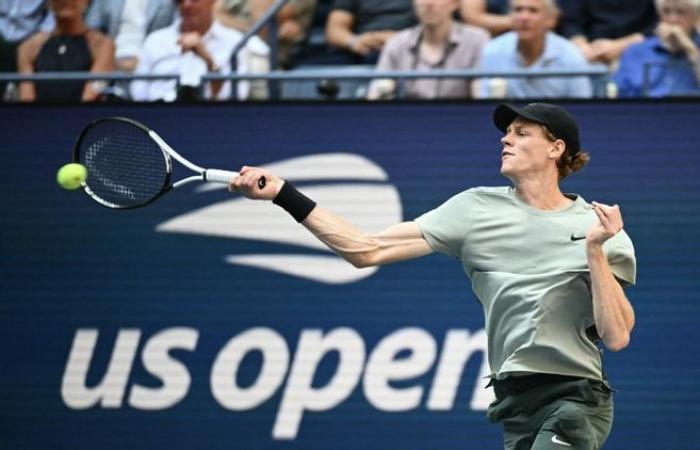
The World Anti-Doping Agency (WADA) announced on Saturday that it had appealed and is demanding a suspension of one to two years for Jannik Sinner. The Italian tennis player declares himself “very disappointed and also surprised”.
While he had been cleared by the International Agency for Tennis Integrity (Itia) after having tested positive twice for clostebol, an anabolic steroid, in March, Sinner was caught up in an affair likely to shake up the hierarchy at the top of world tennis. The World Anti-Doping Agency (WADA) announced on Saturday September 2 that it had appealed and is demanding a suspension of one to two years for the Italian tennis player. It is now the Court of Arbitration for Sport (CAS) which must decide in this case involving the winner of the Australian Open and the US Open.
Sinner said he was “very disappointed and also surprised” by this call, Saturday after his victory over Russian Roman Safiullin in the round of 16 of the Beijing tournament.
“There were three hearings and all three ended very positively for me.”
Jannik Sinner (empty)
At first instance, an independent court concluded that the 23-year-old Italian player had committed “no fault or negligence”, a decision “not correct with regard to the applicable rules” according to WADA. As a result, the anti-doping body based in Montreal “requests a suspension period of one to two years” against Jannick Sinner.
Two positive doping tests in 2024
In full rise after winning his first major title, in Melbourne, Sinner had undergone two positive doping tests in March 2024 eight days apart: on March 10 during the Indian Wells tournament and on March 18 out of competition, but just before the Miami tournament. Trace amounts of clostebol were found in his urine.
Both times, the player appealed, which allowed him to reduce his automatic suspensions (from April 4 to 5 for the first, from April 17 to 20 for the second).
The Italian defended himself by explaining that he had suffered “contamination by a member of his staff, who had applied an over-the-counter spray containing clostebol to his own hand to treat a small injury”, according to the International Agency for Health. integrity of tennis (Itia) which accepted his defense and officially cleared him at the end of August.
“The last memory of this fading summer”: the Paris 2024 Olympic rings removed from the Eiffel Tower
With AFP





